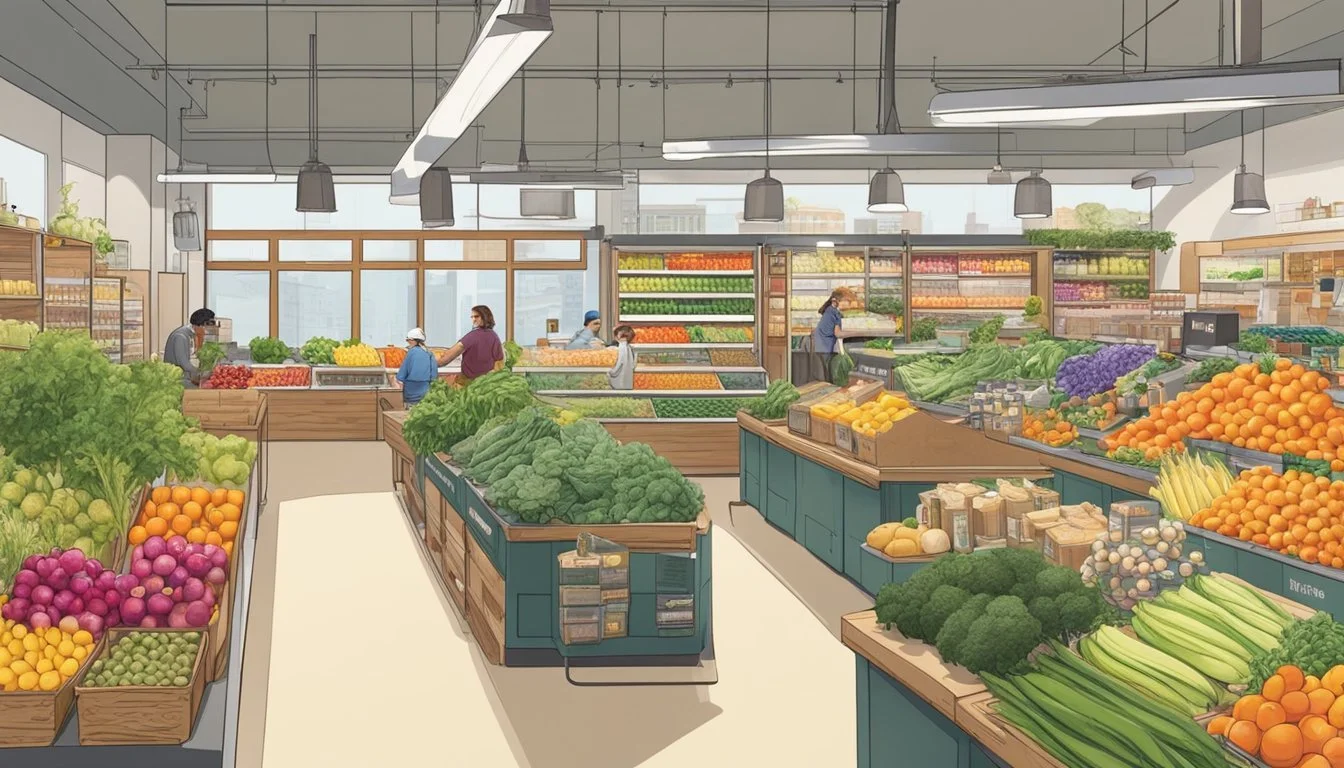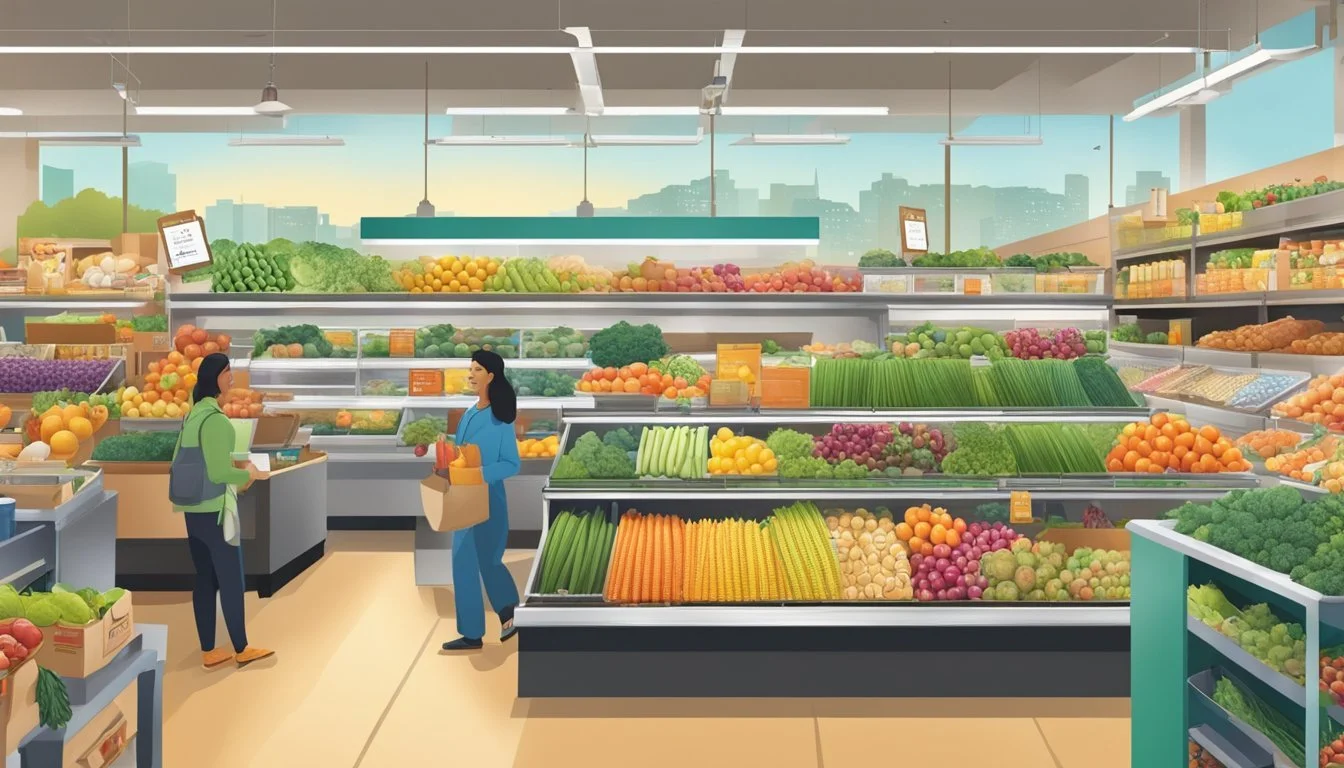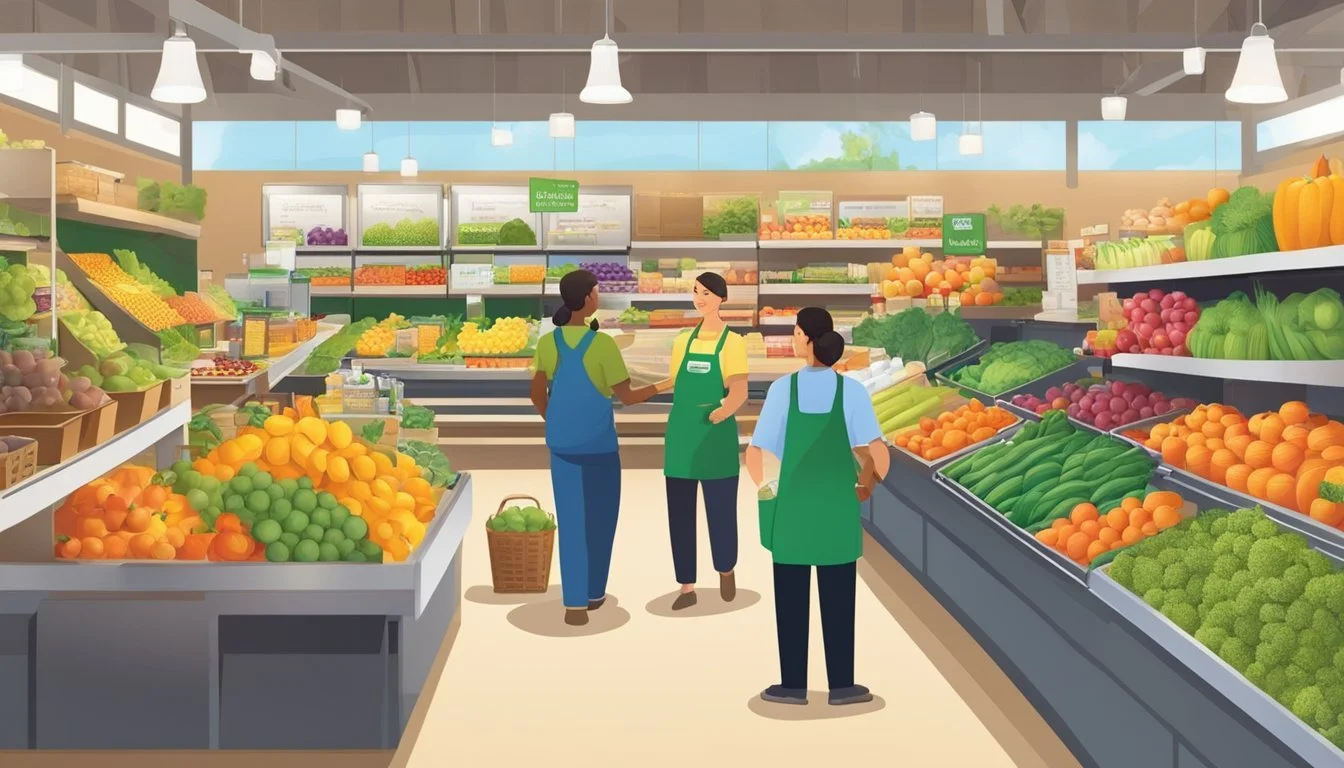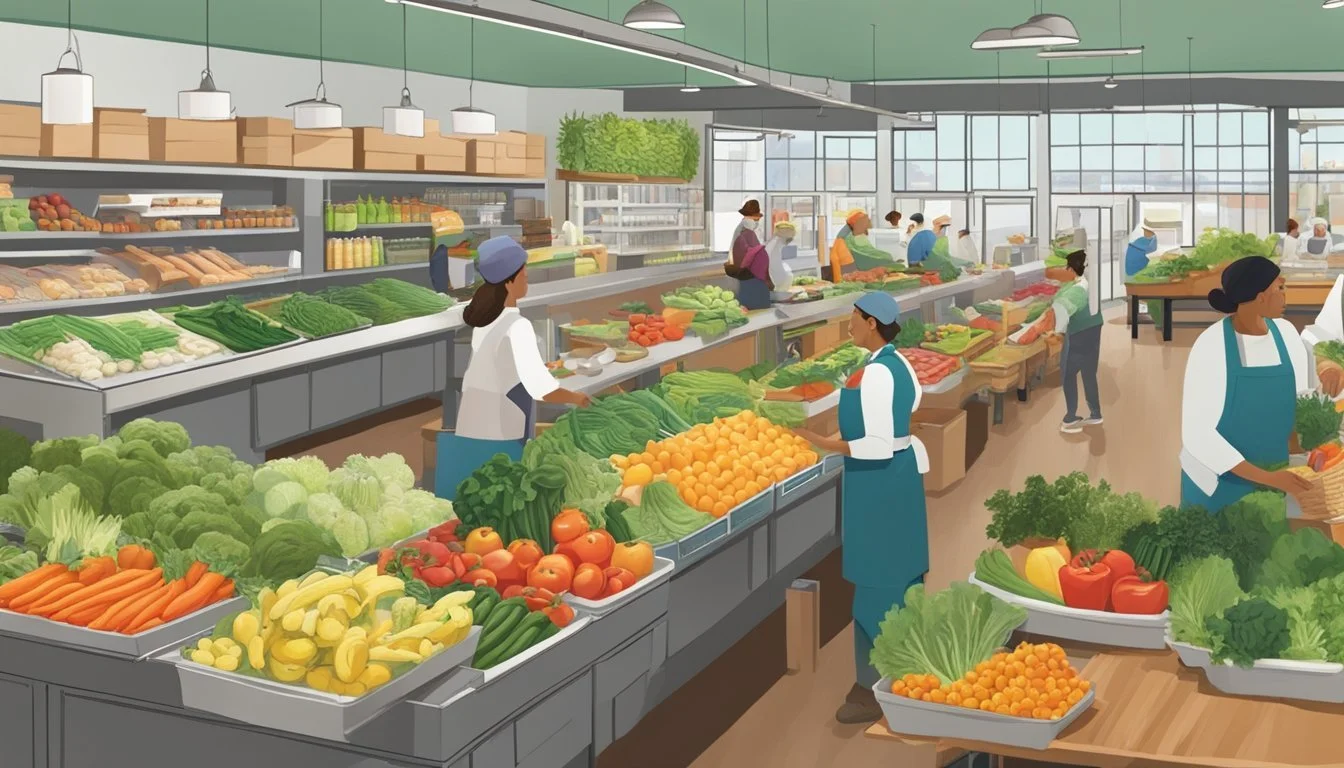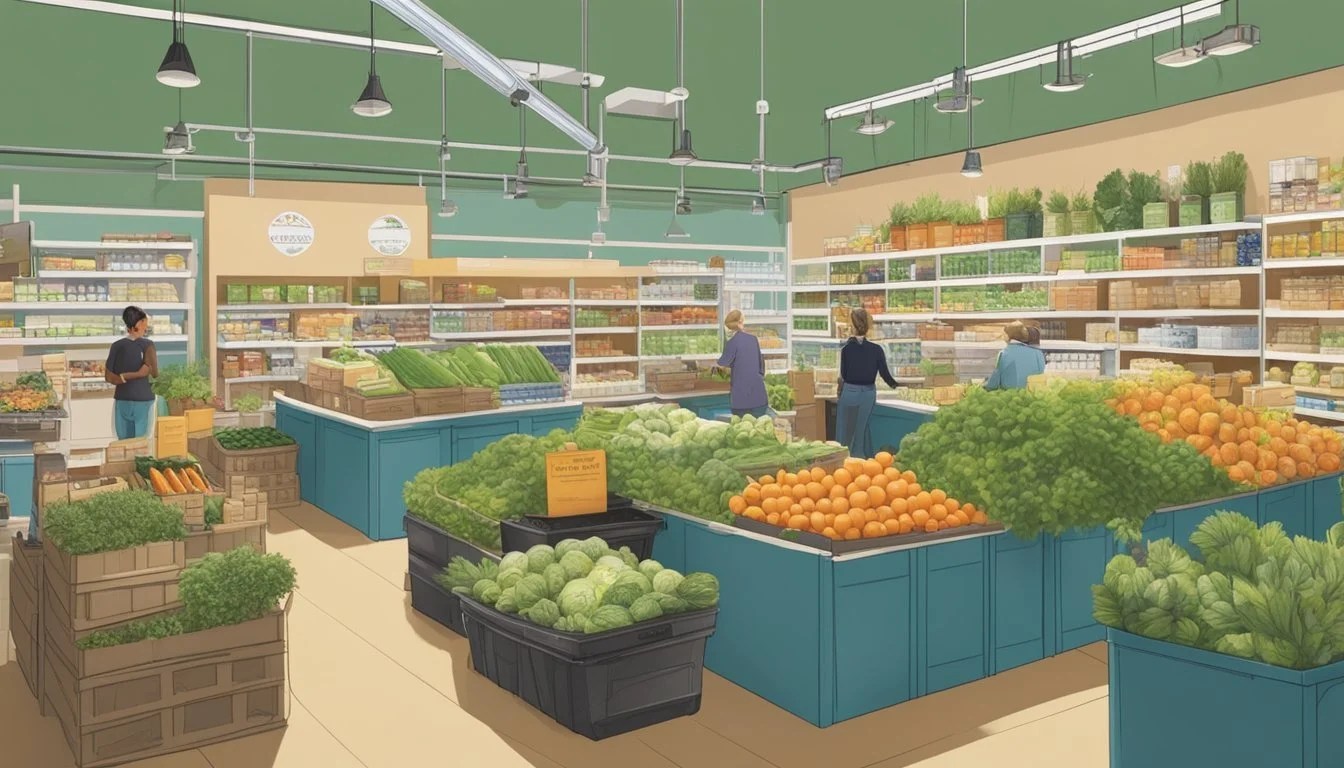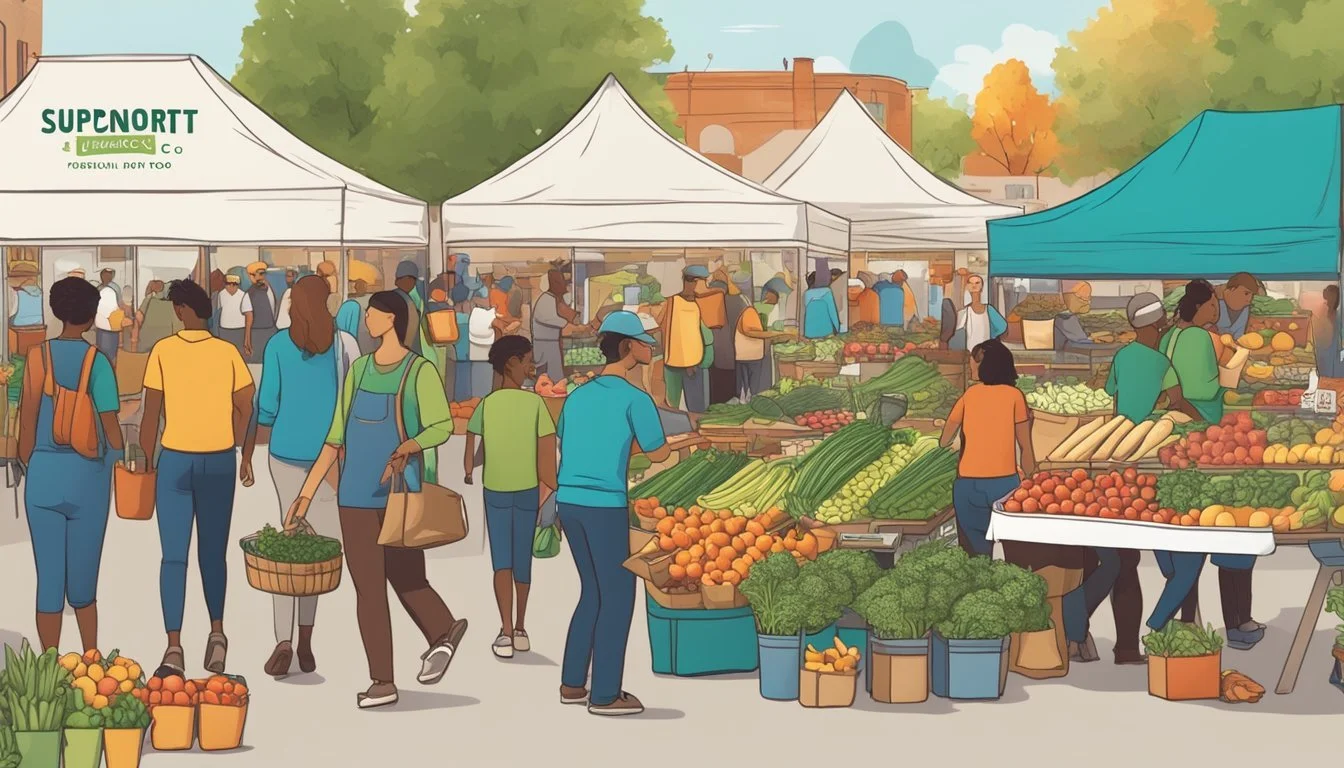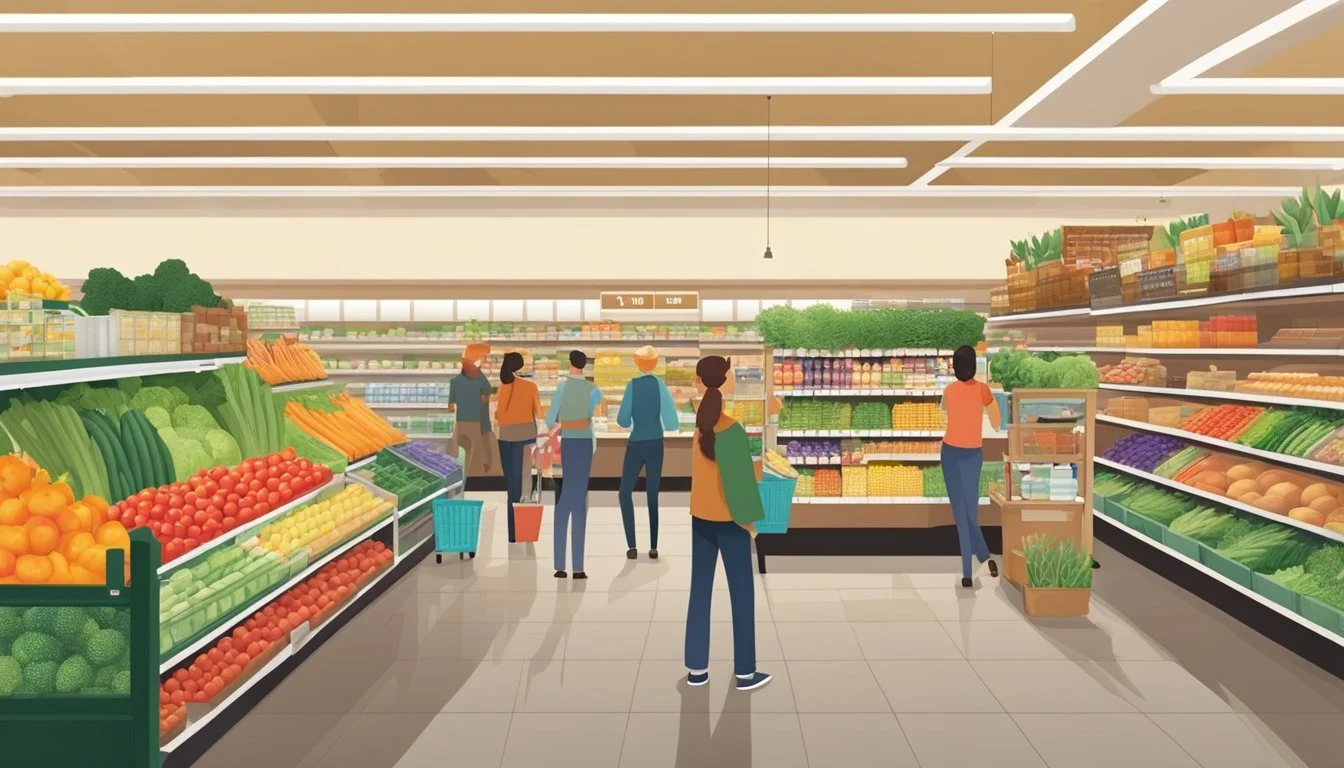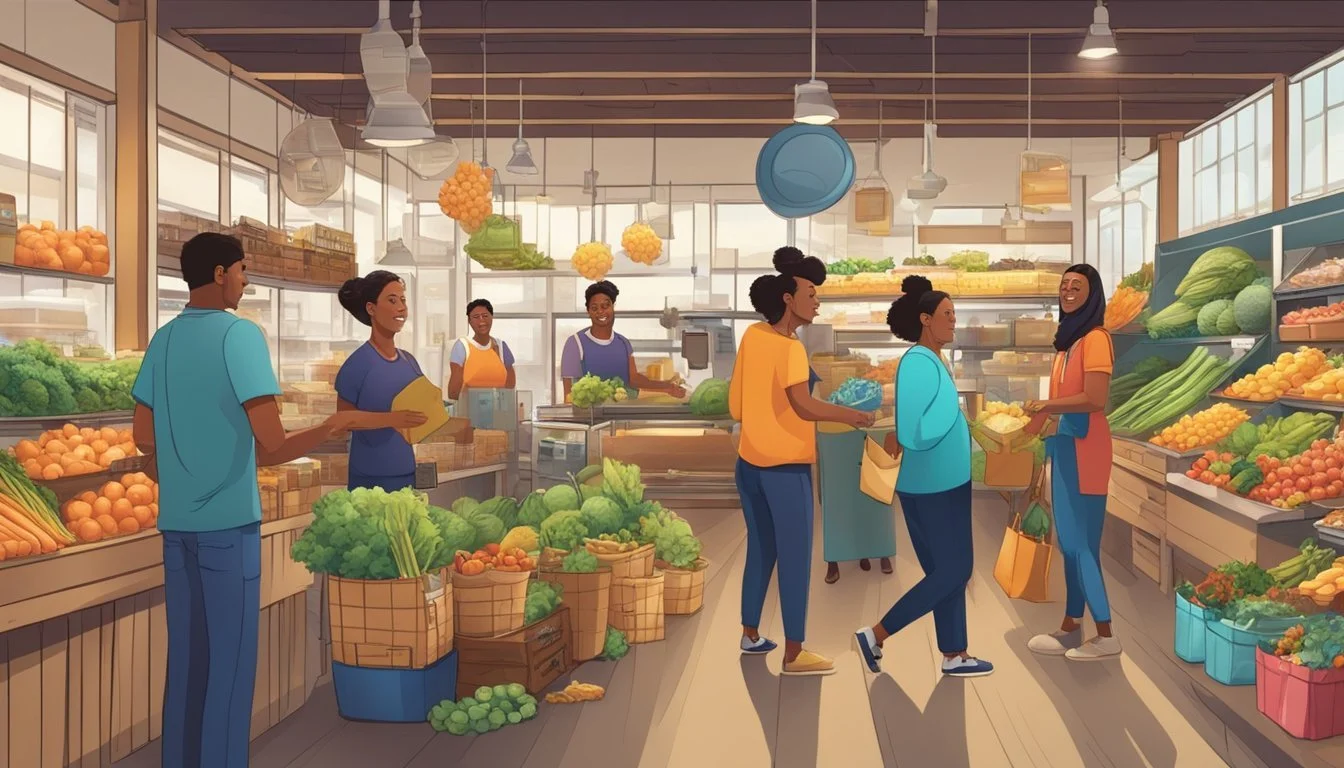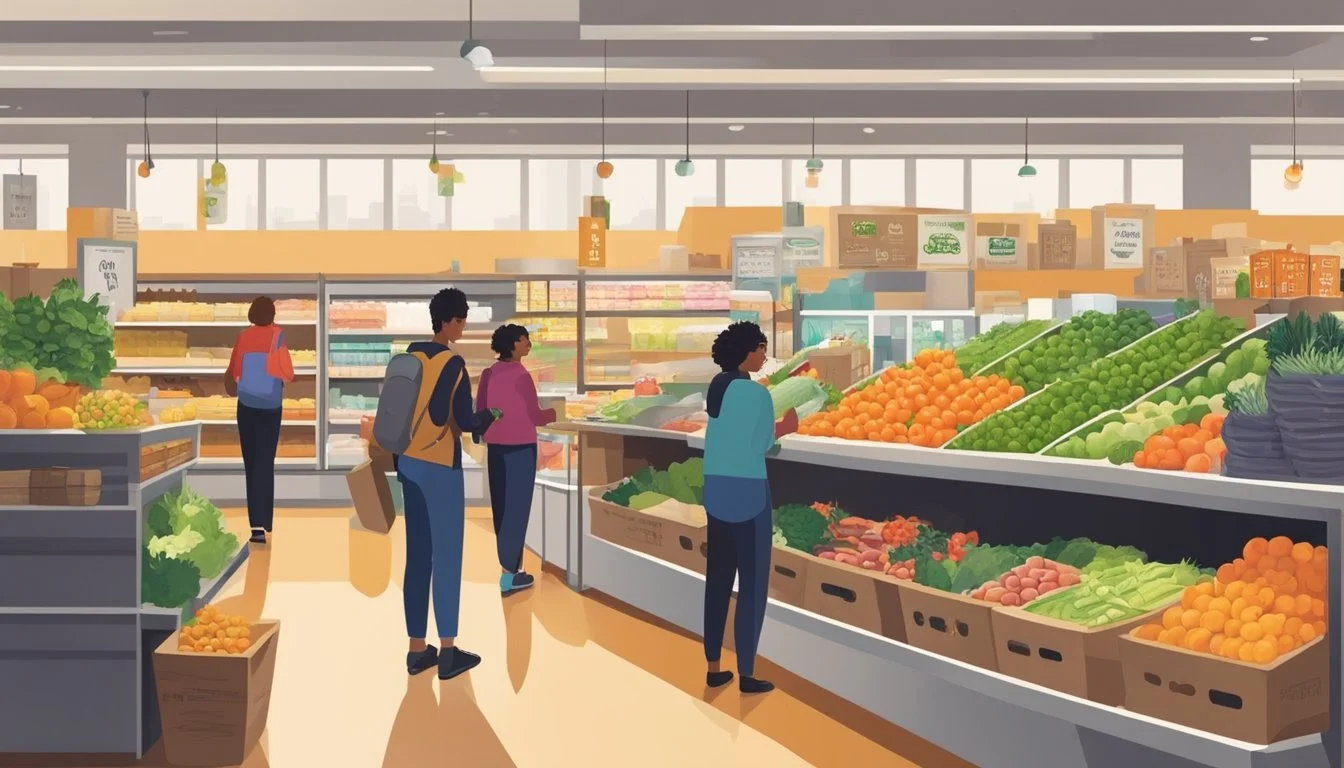Guide to Food Co-Ops in San Francisco, CA
Your Local Buying Guide
San Francisco is a city that not only thrives on its culinary diversity but also has a profound respect for sustainable living and community-oriented business practices. Food cooperatives, or food co-ops, are a manifestation of these values, offering residents access to locally-sourced and eco-friendly food options. These member-owned retail outlets are known for supporting local farmers and artisans, providing consumers with fresh, organic produce and a variety of vegetarian, vegan, gluten-free, and bulk foods.
In the heart of the Bay Area, these food co-ops differentiate themselves from conventional grocery stores by fostering a strong sense of community involvement and transparency in food sourcing. With a focus on sustainable agriculture, San Francisco's food co-ops contribute to the local economy while promoting healthier eating habits and environmental responsibility. The city's co-ops range from small neighborhood stores to larger, well-established cooperatives like Rainbow Grocery Cooperative, known for its vast selection of organic products since 1975.
Each food co-op in San Francisco carries its unique set of values and offerings, making them more than just shopping destinations; they are hubs of education and connection for like-minded individuals who care deeply about the quality and origins of their food. Whether one is looking for a full grocery shopping experience or specialty local products, the co-ops in San Francisco provide an enjoyable and meaningful way to shop while investing in the local community.
History and Philosophy of Food Co-Ops
Food co-operatives in San Francisco illustrate a rich heritage of community-driven sustainable business. These grass roots organizations are deeply rooted in a philosophy of cooperation and mutual benefit.
The Birth of Food Co-Ops in SF
The emergence of food co-ops in San Francisco traces back to the city's early history when community members sought to create an equitable alternative to conventional supermarkets. Local residents banded together to form co-operatives, establishing a network of shared ownership and democratic control. These co-ops provided access to fresh, locally-sourced produce and fostered a sense of community among members while promoting sustainable business practices.
Principles of the Co-Op Movement
The cornerstone of the co-op movement lies in its seven internationally recognized principles:
Voluntary and Open Membership: Co-ops are open to anyone willing to accept the responsibilities of membership.
Democratic Member Control: Co-ops are governed by their members, who actively participate in setting policies and making decisions.
Member Economic Participation: Members contribute equitably to, and democratically control, the capital of their co-op.
Autonomy and Independence: Co-ops are autonomous, self-help organizations controlled by their members.
Education, Training, and Information: Co-ops provide education and training for members and the public to contribute effectively to the development of their co-operatives.
Cooperation among Cooperatives: Co-ops serve their members most effectively and strengthen the co-op movement by working together.
Concern for Community: Co-ops work for the sustainable development of their communities through policies approved by their members.
These principles are the lifeblood of food co-ops in San Francisco, permeating every aspect from governance to the sourcing of products. They exemplify a commitment to community empowerment and economic sustainability, ensuring that each co-op remains a reflection of the collective will and needs of its members.
Popular Food Co-Ops in San Francisco
San Francisco, CA, is known for its vibrant food scene and environmentally health-conscious ethos. This section explores the notable food cooperatives that reflect the city's commitment to local, organic, and worker-owned establishments.
Rainbow Grocery
Rainbow Grocery stands out as a significant player in San Francisco's organic food landscape. Emphasizing vegetarian and health-focused products, this worker-run cooperative is committed to providing affordable, environmentally-conscious items to the community.
Other Avenues
A staple in San Francisco since its inception, Other Avenues is a worker-owned cooperative offering a variety of local organic foods. They focus on sustainability and support for local producers, creating a close-knit food community.
Foods Co
Foods Co operates with a no-frills approach in the Mission district, providing a range of grocery items. While it contrasts with the traditional co-op model, it offers lower-priced goods in an accessible format.
Mandela Grocery Cooperative
Located in West Oakland, Mandela Grocery Cooperative is a worker-owned store known for its commitment to healthy food, local farms, and building community. It supports local, organic produce and features art from the community, promoting both health and culture.
Other Avenues Food Store
Not to be confused with Other Avenues, Other Avenues Food Store is another community-oriented market in San Francisco. With a solid reputation for quality and service, they ensure customers have access to organic and sustainable products.
Bi-Rite Market
Bi-Rite Market has established itself as more than just a place to shop; it's part of San Francisco's cultural fabric. They offer a curated selection of local and organic produce, artisanal foods, and are known for their environmentally health-conscious approach.
What to Expect When Shopping at Co-Ops
Shopping at food co-ops in San Francisco offers access to a range of healthy and eco-friendly food options. Shoppers can contribute to community initiatives while enjoying a unique selection of locally-sourced products.
Product Selection
When patrons enter a San Francisco food co-op, they are typically greeted with an abundant selection of fresh produce. This often includes:
A variety of organic vegetables and fruits
Selections catering to vegetarian and natural food preferences
Eco-friendly foods that support sustainable practices
Shelves are likely to be stocked with products from local artisans, ensuring that the food is not only fresh but also helps to bolster the regional economy.
Pricing and Affordability
Food co-ops are known for their commitment to providing food at an affordable price. While some products may carry a higher price tag due to their organic and natural origins, members may benefit from:
Quarterly or annual dividends or rebates
Special discounts as part of the membership program
The focus remains on balancing accessible prices with high-quality, healthy options, maintaining a strong value proposition for the community.
Community Engagement
Co-ops are more than just retail outlets; they are community hubs. Shoppers can expect:
Opportunities to vote on important decisions and influence the co-op's future direction
Engagements in food education and community support initiatives
Customers are not only completing their grocery shopping but are also supporting local initiatives and contributing to a community-centric marketplace.
The Benefits of Joining a Food Co-Op
Joining a food co-op in San Francisco presents tangible benefits for individuals keen on direct involvement in their food sourcing while bolstering local producers and fostering a more resilient community.
Membership Advantages
Food co-op members enjoy a series of benefits that create a more engaged shopping experience. By purchasing shares, they obtain a degree of ownership and a voice in decision-making processes. This democratic approach enables members to influence the variety and quality of products on offer, ensuring that they align with shared values of sustainability and health-consciousness. Further, co-ops tend to provide members with discounts, special deals, and rebates based on patronage, making it financially rewarding.
Discounts on purchases
Voting rights in co-op affairs
Access to member-only events, like workshops and classes
Rebates reflective of their expenditure and the co-op’s profitability
Supporting Local Economy
Food co-ops are intimately linked with the local economy, where they serve as anchors in neglected neighborhoods and help to cultivate a prosperous community. By forming direct buying relationships with local farmers and producers, co-ops help to sustain local jobs and invest back into the community. This model champions sustainable agriculture by supporting farms that adopt eco-friendly practices, hence encouraging environmentally sustainable local production.
Local Economy Impact:
Activity Impact on Local Economy Buying from local producers Keeps money in local circulation, promotes growth Supplying neglected neighborhoods Increases access to fresh food, stimulates community development Advocating for sustainable agriculture Preserves local farmlands, encourages responsible farming practices
By joining a food co-op, individuals directly contribute to the viability and success of such community-oriented initiatives, ensuring that their local neighborhoods not only survive but thrive.
Specialty Sections and Products
In San Francisco, food co-ops excel by offering an array of specialty products that cater to discerning palates. Whether it's the premier cheeses, healthy organic foods, or fresh seasonal fruits, these sections thrive on providing the finest items that are sustainably sourced and often made locally.
Cheese Plus
Cheese Plus is renowned for its Premier Cheese selection. This specialty food store delivers an experience centered on the finest cheeses, featuring artisanal and farmstead offerings. Customers can find cheeses that embody straight-from-the-earth freshness, aligning with their preference for sustainable practices.
Real Food Company
At Real Food Company, shoppers discover a focus on Healthy Organic Foods. Here, the emphasis falls on organic products that promote well-being. With options like Fresh Seasonal Fruits and items crafted from Sustainable Practices, the company ensures that conscious consumers have access to the best that nature can provide.
Omf Market
Omf Market distinguishes itself with goods that are not only Made Locally, but also adhere to Fair Trade principles. The market's philosophy supports the ethical treatment of producers, while also showcasing an abundance of healthy, organic, and locally manufactured products for a market that values authenticity and community.
Events and Workshops
In San Francisco, CA, food co-ops serve as beacons for community engagement, often hosting events and workshops aimed at education, cultural enrichment, and empowerment. These gatherings reinforce the cooperative spirit by providing platforms for members to lead, learn, and connect.
Co-Op Sponsored Events
Food co-ops like Haight St Commons are known for transforming their spaces into dynamic social hubs for a variety of events. They frequently curate and host events such as:
Tea Tastings: A selection of fine teas is offered to attendees to explore and savor.
Art Exhibitions: Local artists are given a space to exhibit their work, fostering creativity in the community.
Movement and Dance Workshops: These activities encourage physical expression and wellness.
The co-op’s purpose during these events is to create an environment that facilitates social interactions and celebrates local culture.
Community Classes
Co-ops are also committed to providing educational opportunities to the public:
Cooking Workshops:
To demonstrate the use of organic and local produce
To teach healthy and sustainable cooking practices
Sustainability Seminars:
Discussions on food sourcing and environmental impact
Strategies for community-oriented sustainability
These classes not only inform but also serve to empower new leaders within the community who are knowledgeable about sustainable practices and cooperative principles.
Sourcing and Environmental Commitment
San Francisco’s food co-ops are dedicated to sourcing local and organic produce and implementing diverse environmental initiatives to maintain a sustainable food system and minimize ecological impact.
Local and Organic Sourcing
Food co-ops in San Francisco take pride in collaborating with local and state-wide certified organic farmers to offer consumers fresh and environmentally health-conscious products. By maintaining a strong relationship with these producers, co-ops ensure that the shelves are stocked with organic stores of produce, which supports sustainable agriculture. This commitment not only promotes eco-friendly food options but also bolsters the local economy and reduces transportation emissions.
Local Partnerships: Co-ops partner with entities such as Om Organics to connect with local producers.
Certifications: They ensure that the products are certified organic to provide quality and trust.
Inventory: The offerings typically include selections from fruits and vegetables to dairy and meat products, all sourced with a focus on organic and sustainable practices.
Environmental Initiatives
San Francisco's co-ops are actively engaged in environmental initiatives designed to reduce carbon footprints and pave the way toward a more sustainable future.
Emission Reduction: Many co-ops have commitments to cutting down greenhouse gas emissions, such as Federated Co-operatives Limited's goal to reduce emissions by 40% below 2015 levels by 2030.
Efficiency Improvements: Updates to operations, including efficient gas bars, are steps being taken to align with environmental goals.
Regenerative Practices: They also invest in environmentally regenerative methodologies to uphold the integrity of the ecosystems they rely on for sourcing products.
Exploring Auxiliary Services
Food co-operatives in San Francisco offer a range of auxiliary services that enhance the shopping experience, expanding beyond mere grocery shopping. These services include options for community-supported agriculture (CSA) and buying clubs, as well as convenient delivery alternatives.
CSA and Buying Clubs
Food co-ops in San Francisco strengthen the connection between local family farms and urban residents by providing Community-Supported Agriculture (CSA) memberships. Joining a CSA allows individuals to purchase a "share" of the harvest directly from local producers, ensuring they receive regular distributions of fresh, seasonal produce. By participating, members support the Buy Fresh Buy Local Campaign, helping to sustain the local agricultural economy.
Additionally, some co-ops organize buying clubs, which are groups that buy food in bulk and distribute it among themselves. This model can offer significant savings on high-quality groceries and encourages a collaborative approach to food shopping.
Delivery Options
To accommodate the needs of their members, several San Francisco co-ops have integrated delivery services into their offerings. Co-ops may provide same-day delivery options, making it incredibly convenient for members to receive fresh, organic produce and grocery items directly to their doorsteps. This service is valuable for individuals who prioritize convenience but do not want to compromise on the quality of their food.
The integration of delivery services by food co-ops captures the essence of modern convenience while staying true to the cooperative ethos of community and shared benefit.
Community Impact and Outreach
Food co-ops in San Francisco are not just places to buy groceries but serve as essential hubs for strengthening community ties and supporting local economies. They provide education on nutrition and aid in the development of small businesses, specifically targeting the diverse residents and employees in the area.
Food Education Programs
San Francisco's food co-ops are pivotal in promoting nutritional education among their community members. Initiatives like the Haight St. Commons focus on creating an informed public capable of making healthier food choices. Through workshops and cooperative events, participants learn about the benefits of whole foods, the importance of sustainability, and how to source products from local farmers, directly supporting the community's nutrition and health.
Notable programs include:
Cooking classes demystifying healthy eating
Educational events with nutritionists and local farmers
Partnerships with organizations like Mandela Foods Cooperative
These efforts aim to combat food insecurity while empowering residents with the knowledge to maintain a healthy lifestyle.
Small Business Development
Food co-ops in San Francisco act as incubators for small, local businesses, which allows for the growth of the food-based economy and the promotion of the food conspiracy ideology, where the focus is on collective action in food systems. They provide resources and opportunities for entrepreneurs, many of whom are residents of the neighborhoods the co-ops serve.
Support includes:
Microloans and financial advice for start-ups
Retail space for local farmers and producers
Networking events to connect small business owners with investors
The development of these businesses highlights the co-ops’ dedication to dynamic and sustainable community growth, with the added benefit of creating new employment opportunities and stimulating local micro-economies.
Profiles of Co-Op Employees and Members
In the aisles and behind the scenes, San Francisco co-ops are rich with stories of community-building and diverse workplace experiences. Each employee and member brings a unique perspective to the cooperative model.
Stories from the Co-Op Floor
At food co-ops like Rainbow Grocery, members and employees form the backbone of the store's success. Employees often wear multiple hats, engaging in roles from cashiering to inventory management, ensuring shoppers find both the products they seek and a sense of community.
Rainbow Grocery: Celebrating nearly 30 years at the time of the search results snapshot, Rainbow Coop has been a cornerstone for health-conscious shopping in San Francisco. Employees there have consistently contributed to a welcoming and inclusive atmosphere, with many joining the co-op for its ethos of shared ownership and collaborative decision-making.
Diversity in the Workplace
National Co+op Grocers (NCG) Member Co-ops: The NCG prides itself on cultivating an inclusive work environment across its member co-ops. Representation from various backgrounds is evident in the 220+ communities served. In 2021, it was reported that 40% of service employees from these member co-ops had access to employer-sponsored retirement plans, illustrating a commitment to employee well-being.
Through the commitment of their diverse staff and the support of their community-based model, food co-ops in San Francisco like Rainbow Grocery reflect both a rich tapestry of personal employee experiences and the collective strength of their member-owners.
Navigating Challenges in the Co-Op Space
Food cooperatives in San Francisco, CA, face a unique set of challenges as they endeavor to sustain their business model and contribute to a dynamic, equitable food landscape.
Economic Challenges
Sustainable Business Practices: Economic sustainability remains a crucial challenge for food co-ops. They must balance the need to remain competitive with large-scale grocery retailers while honoring their commitment to fair trade and local sourcing, which often come with higher costs. In order to maintain financial health, co-ops are exploring innovative cost-saving strategies without compromising their values.
High Operating Costs: Co-ops can encounter financial strain from the expenses associated with sourcing from smaller producers and implementing environmentally friendly practices.
Membership and Pricing Balance: They work to set prices that both cover costs and remain affordable to their members and the local community.
Future of Co-Ops in the Bay Area
Adapting to a Changing Market: The future of food co-ops in San Francisco hinges on their ability to adapt to an evolving market. This requires a nimble approach to business, embracing technologies that streamline operations and enhance the shopping experience for their members.
Technological Innovations: Embracing e-commerce and digital marketing.
Community Engagement: Strategically reinforcing community ties to build a loyal customer base that supports the co-op model.
By tackling these challenges head-on with innovative solutions, San Francisco's food co-ops aim to remain steadfast components of the city's diverse and vibrant food system.
Other Notable Markets and Stores
San Francisco and its surrounding Bay Area are home to a profusion of markets and specialty stores that offer a diverse range of products, from sustainable seafood to farm-fresh produce, catering to the eclectic tastes of the local community.
Sellers Markets
Sellers Markets stand out for their extensive selection of organic foods. This destination market is cherished for providing a seasonal palette of flavors, ensuring a fresh experience with every visit. They prioritize relationships with local farmers, thus reinforcing sustainable food systems within the area.
JR Seafood
JR Seafood specializes in providing fresh local fish with an emphasis on sustainable fish options. Their offerings include both fresh and frozen fish, reflecting their commitment to quality and choice. This fine gourmet store in North Oakland is a trusted source for seafood enthusiasts.
Piedmont Grocery
A staple since it first opened its doors, Piedmont Grocery offers an array of high-quality goods including a delectable deli selection. Their shelves are stocked with both everyday and exotic items, making it a true village-based business that faithfully serves the local community.
Monterey Market
Monterey Market is renowned for their field-fresh produce, showcasing a variety of fruits and vegetables that are both local and organic. The market has become a central part of the community’s food systems, where people come to find ingredients that embody the area’s seasonal flavor.
Berkeley Student Food Collective
The Berkeley Student Food Collective works to provide affordable, sustainable, and organic foods accessible to students and residents alike. This collective operates as a hub for those interested in supporting alternative, community-focused food systems and includes popular items like locally sourced tofu in their product lineup.
Glossary of Food Co-Op Terminology
Co-op (Cooperative): A cooperative, commonly referred to as a co-op, is an enterprise that is owned and operated by a group of individuals for their mutual benefit. Food co-ops often focus on providing quality food products sourced from local producers, emphasizing community involvement and sustainable food systems.
Food Systems: This term encompasses all the processes involved in feeding a community, from production, processing, and distribution to consumption and waste management. Local food systems within a food co-op context prioritize proximity, supporting nearby farmers and producers to reduce the ecological footprint and strengthen the local economy.
Farmstead Cheese: A specialty product offered by some food co-ops, farmstead cheese is crafted with milk from the producer's own herd or flock on the very farm where the animals are raised, ensuring freshness and traceability.
Foodshed: An analogy to watershed, the term foodshed refers to the geographic region that produces the food for a particular population, highlighting the interconnected nature of food production and consumption within a local or regional food system.
Worker-Owned: Pertaining to a business structure where the employees are also the owners, sharing in decision-making, profits, and responsibilities. Worker-owned co-ops like Rainbow Grocery strive to create equitable work environments and often focus on sustainable practices.
Consumer Cooperative Movement: A historical reference to the collective efforts of consumers banding together to form retail enterprises that are democratically governed and committed to fair pricing, quality goods, and community benefit. While some, like the Berkeley food cooperative, have closed, the movement itself continues with many thriving food co-ops in existence.
Conclusion: The Role of Co-Ops in Shaping Food Culture
In San Francisco, food co-ops serve as integral players in the tapestry of the city's vibrant food culture. They champion sustainable agriculture by sourcing from local farmers, reducing the carbon footprint associated with long-haul transportation. Food co-ops also prioritize organic and non-GMO products, contributing to healthier soil and ecosystems.
The local community benefits from the educational resources and events that co-ops provide, fostering informed consumer choices and a deeper appreciation for the food people eat. Through interactive workshops and local outreach, co-ops become more than just a place to shop; they transform into hubs of knowledge sharing and collaboration.
San Francisco's food co-ops are not just retailers – they are cultivators of community resilience. In a bustling urban setting, they reconnect urbanites with the origins of their food, enabling patrons to make conscious decisions that align with their values. By supporting these co-operatives, San Franciscans invest in a food system that is equitable, self-sustaining, and socially responsible.
The role of food co-ops is pivotal – they facilitate a vital link between the food on one's plate and the hands that nurtured it. This connection enriches the food culture within San Francisco, making each meal more than sustenance but a reflection of the city's commitment to inclusivity and sustainability.

